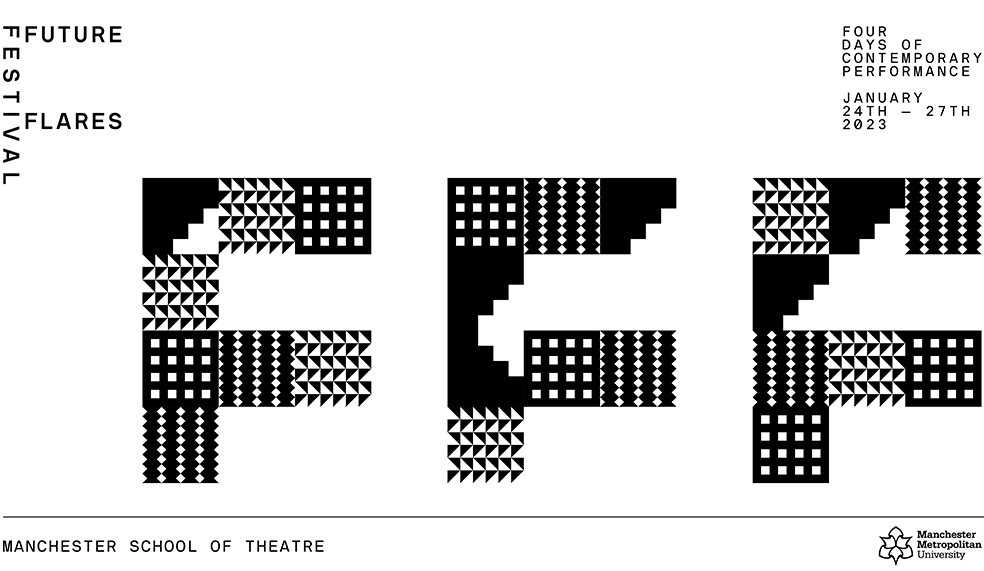Future Flares Festival 2023
Curatorial Statement
For an audience, walking into a theatre is an act of faith - faith that what awaits them is an experience they will value, and that having spent their money and/or committed their time they will not be disappointed and left thinking about how they can get out of the room (disrupting the event for everyone else as they do so). Afterall, film can give you a very good indication of what you will see in the cinema, and you can walk through an art gallery at whatever pace you choose, but theatrical experience is haunted by its own particular sense of jeopardy.
For whoever chooses the work that's shown, the weight of responsibility that this generates can lead to a compulsion to keep the form of theatre presented broadly predictable,. ultimately restricting the development of the artform, and working against the spirit of its liveness. To avoid this, and so to establish a truly contemporary theatre, theatrical form needs to be viewed not as a set of reassuring and essentially conservative conventions, but as a creative pallet for the contemporary artist. There's still faith required of the audience, but it's a faith that the artists responsible for the performance are good at what they do, astute enough and skilled enough to have worked with the form of theatre to create a valued aesthetic experience. Whoever has chosen the work is therefore responsible to make sure that this is the case.
The curation of the Future Flares Festival set out to focus on performance that combines a deep concern with lived experience today, with a willingness to think afresh about what theatre is and how it works. Such a willingness could be seen as an arbitrary and simplistic attack on some of the fundamental components of theatrical experience - that the show starts when the audience are seated and the lights go down, that the audience are passive observers, that ‘theatre’ will be the primary artform in play, that the performers task is to represent someone else etc.
Disrupting such assumptions does not of course lead to valued aesthetic experience per se, but when skilfully employed in direct correlation to a broader interrogation of key contemporary concerns, it can make theatrical experience that is uniquely placed to be an artistic response to life in 2023.
Performance that sits outside of accepted conventions of theatre, whether rooted in fine art practice, cabaret, music or street intervention, can have its own powerful impact, working with and against art - form conventions and contextual politics, and often as a model of progressiveness. And where performance art - with its own engagement with social reality, the specifics of space, the politics of identity etc. - sits comfortably in the context of contemporary art, it becomes part of a bigger question too. Why do the major institutions of contemporary art internationally attract so many millions to what is almost by definition unpredictable, when even the most contemporary of theatres or arts centres (in this country at least) struggle to maintain any commitment to truly contemporary theatre?
The Future Flares Festival belongs to a trajectory of events and programmes aimed at increasing the visibility of contemporary theatre and performance enhancing conversations about performance across the broader arts context and facilitating the growth of new performance practice. I hope you enjoy it.
Neil Mackenzie
Future Flares Festival Curator
Senior Lecturer, Drama and Contemporary Performance
